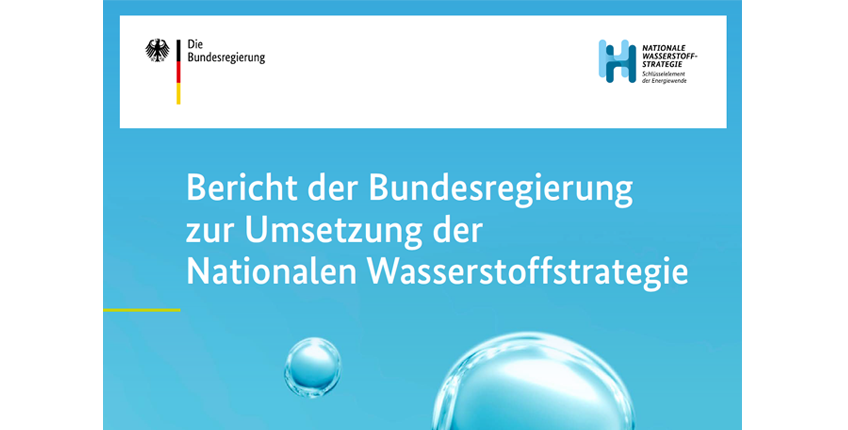About a year after the adoption of the National Hydrogen Strategy, the federal cabinet today issued a report with a positive interim assessment of its implementation thus far. Green hydrogen is a central component of the success of the energy transition in Germany, but also for achieving national and global energy and climate goals.
The continued market ramp-up of hydrogen technologies and the availability of sufficient import volumes are the two decisive levers that need to be worked on with complete focus. Hydrogen is crucial for the decarbonisation of the steel and chemical industry, but also for the transport sector. At the same time hydrogen technologies are increasingly important for the Germany export economy. High-quality energy research helps to develop innovations in this field and accelerate transfer to the market.
Federal Minister for the Economy and Energy, Peter Altmaier: “We successfully launched ‘Made in Germany’ hydrogen technologies in June of 2020. We have achieved much since then. We are allocating over 8 billion euros for 62 hydrogen projects, 2 billion of which is for the steel industry. This is the future of made in Germany. This is the way we will promote jobs, growth and climate protection.”
Federal Ministry of Transport and Digital Infrastructure, Andreas Scheuer, said: “We need hydrogen in order to reach the climate goals in the transport sector. That is why we have been driving research and development as well as market activation measures for more than a decade under the National Innovation Programme for Hydrogen and Fuel Cell Technology and have already made more than 1.3 billion euros available. It is important now to have commercial projects on the market. Hydrogen must be experienced by people. This is precisely where we have started with our strategy and we have considered the entire value chain – from production, storage and infrastructure to its application in vehicles. With the establishment of the Hydrogen Innovation and Technology Centres we are directly addressing the needs of industry and supporting the development of our own fuel cell production in Germany. This offers future prospects for the German car industry and secures many jobs.”
Federal Minister for Education and Research, Anja Karliczek: “Germany is still an energy-importing country. That’s why we must quickly form supply chains for green hydrogen with our foreign partners. At the same time we need to build up electrolysis capacity in Germany and convert industrial key processes to green hydrogen. We must become more ambitious and above all, courageous in this endeavour. This is the only way we can secure our prosperity and jobs. And for this we need investment in innovation. We have already gotten a lot off the ground: with the BMBF (Federal Ministry of Education and Research) lead projects, high-profile flagship projects on the key challenges of the hydrogen economy have been launched. And with initiatives for building up global hydrogen supply chains like the hydrogen atlas for Africa as well as feasibility studies with partners in Australia, research is becoming a driver for the export of ‘Made in Germany’ hydrogen solutions.”
The Federal Minister for Economic Cooperation and Development, Dr. Gerd Müller, said: “Our climate goals can only be achieved together with developing countries. Green hydrogen needs vast amounts of renewable energies. Production conditions are ideal in many countries in the south, e.g. in North Africa or Brazil. We are working on beginning hydrogen production there on an industrial scale in five years’ time at the latest. That constitutes an effective contribution to climate protection and local job creation and strengthens Germany’s technological leadership. And it demonstrates that being a pioneer in climate policy also means investing in a global energy transition.”
The report is available here (PDF, in German).


